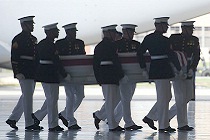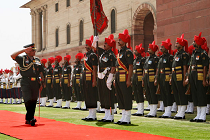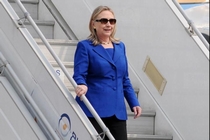Death of an Ambassador
Ambassador Christopher Stevens, the U.S. envoy to Libya, was killed, following protests against a controvertial movie, titled 'Innocence of Muslims.' Is an anti-U.S. sentiment to be blamed for this violence? What consequences will this incident have on the U.S. policies towards Libya and Syria?









